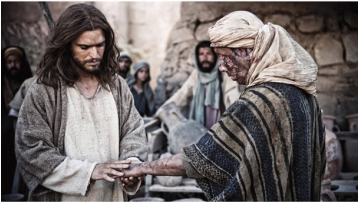A mere few weeks after February 26, Ash Wednesday, 2020, all churches throughout the Commonwealth closed in response to the beginning phases of the pandemic. Now on February 17 a year later, Ash Wednesday arrives once again. Christians adhere with great fervor to the practice of receiving ashes, blessed and smudged on their foreheads. The ritual includes a simple phrase uttered by the minister, a reminder of an enduring truth and/or an exhortation to pursue more closely a life of grace. Both phrases seem to be a side of the same coin.
It is the season to be aware of our mortality, our brokenness, our sinfulness,
and the longing for a more complete and fulfilling life. Lent is an invitation to start once again. It’s time to repair that which is damaged, neglected, or broken within ourselves, in our relationships with others, and most importantly in our relationship with God.
As we think about the beginnings of Lent this year and as we longingly search for the end of the pandemic, it’s easy to look only forward and not recall the challenges, heartaches, grief, hurt, and sadness of the previous year. But is it possible for us to believe we can step into getting back to where we once were without reconciling where we have been? In many cases, that’s a challenging thing to do. For it seems to me the truth is we are always struggling with our mortality. We’re always making mistakes, falling down, not ending up where we hoped to be, feeling less than we really are, and at times, disappointed in ourselves and in others. The pandemic is exacerbating all this and so much more.
So often, when we think of sin our perspective can be what we learned as children or teenagers. In reality, sin is about the daily choices we make about love. Jesus’ only command to us, reinforced continually by His Word, His life, His example, and in the sacraments is about how we are to love one another as we have been loved by Him. That explains the CROSS becoming the central symbol of the Lenten journey: it’s a story of selfless giving out of love for others. It’s a very high threshold and yet a beautiful thing to strive towards.
The church offers us three ways to live out our Lenten journey: prayer, fasting and almsgiving. Once again, we need to bring those old words, which are rich and ever new, into a language appropriate to this time. For example, prayer is about a relationship each of us has with Jesus. Fasting is about self-sacrifice. Yet mostly and ideally, it’s about giving up all that which interferes with living a life of love: refraining from criticism, gossip, unkindness, impatience, selfishness, self -centeredness, self-denigration, and all of the behaviors that are harmful to our wellbeing and the well-being of others.
Almsgiving is a delightful old phrase and it implies giving, usually financially, to those who have a hand out and are in need. Obviously, that’s a good thing. In an even deeper way, almsgiving can be understood as generosity of heart manifested in respect for others, giving of ourselves and caring for others, thoughtfulness, forgiveness, and so much more.
Ash Wednesday, February 17, 2021, is clearly one unlike any other that we
have lived in our lifetimes and it may be an experience each one of us needs more than ever before. We’ve all been through so much and, if your journey has been at all like mine, we regret some of the ways we’ve lived these past months. And yet, the journey has opened up new ways of understanding God‘s love for us and our call to respond to God’s love in the way we live with one another.
This is a Lent to start fresh. Join us as we celebrate Ash Wednesday in our parish church with Masses in the morning, the noon, and in the evening. The 8AM morning Mass on Ash Wednesday will be live-streamed and recorded on our website for you to view when possible. At the Parish Center, ashes and helpful materials will be available in the lobby throughout the day.
A new beginning is a good thing and is there for the offering! May each of us engage in a way unlike any other savoring the unconditional love of God and loving God in return.
Fr. Ronan

Sixth Sunday in Ordinary Time
February 13/14, 2021
The fate of a leper is a great tragedy at any time and place. In
Jesus’ time, lepers were considered condemned, part of the
plagues God sent as punishment. They were cast out of society and abandoned. Saint Mark’s Gospel reveals the unthinkable.
Jesus reaches out and touches a leper.
He risks catching the contagious disease and heals the man.
As the Gospel story teaches, no one is abandoned by Christ.
Are there those in our society or in our personal lives for whom we ascribe no hope, who we have abandoned, treated like lepers?
Or as Christ’s stewards of our sisters and brothers,
do we risk reaching out and touching those who may seem to us to be “unclean” or not worthy of our time or attention?
